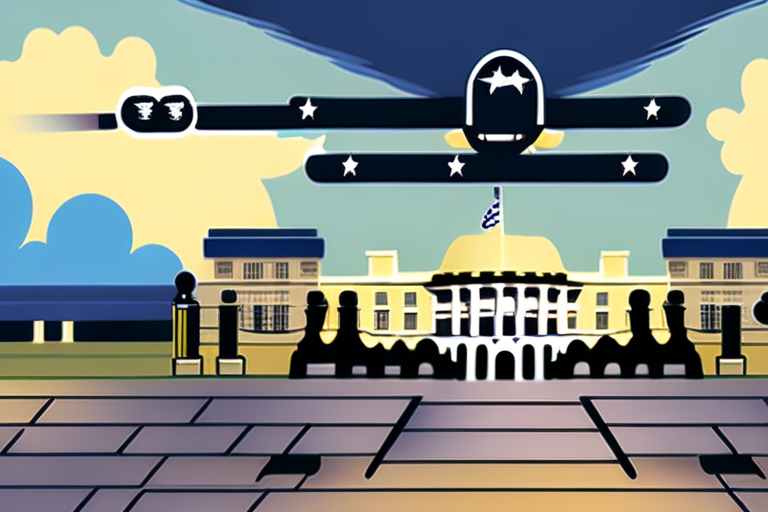Pentagon's Name Change Reflects Shift in Rhetoric, Raises Questions About National Identity
In a move that has sparked both praise and criticism, the Pentagon's website and social media channels were revamped on Friday to reflect the United States Defense Department's new persona as the "Department of War." The change, directed by President Donald Trump through an executive order, marks a symbolic shift in language, one that highlights the administration's preference for projecting strength through the idiom of war rather than defense.
At an Oval Office ceremony, Trump signed the order, stating, "It's really about winning. We won the First World War, we won the Second World War, we won everything before that and in between." He added, "We decided to go woke and changed the name to the Department of Defense."
The change has been met with mixed reactions from lawmakers, experts, and the public. Some see it as a return to a more assertive national identity, while others view it as a step backward into a more aggressive rhetoric.
"This is not just about semantics; it's about the kind of message we want to send to the world," said Rep. Barbara Lee (D-Calif.), who has long been critical of the Pentagon's name change. "We need to be careful about how we frame our military efforts, especially in a time when tensions are running high around the globe."
Others argue that the change is a reflection of the administration's broader approach to national security and foreign policy.
"The Department of War name change is a signal that this administration is willing to take a more muscular approach to defending American interests," said Michael Rubin, a resident scholar at the American Enterprise Institute. "It's not just about the language; it's about the policies and actions that follow."
The Pentagon's website now features a new logo and branding, with the domain name changing from Defense.gov to War.gova. The change is seen as more than just a cosmetic update, but rather a deliberate attempt to shift the national conversation around military efforts.
"This is not just about rebranding; it's about redefining our national identity," said Dr. Cynthia Enloe, a professor of international relations at Clark University. "We need to be careful about how we frame our military actions and their impact on communities around the world."
The change has also sparked concerns among veterans' groups and human rights organizations.
"We're concerned that this name change will perpetuate a culture of militarism and aggression," said Paul Sullivan, executive director of Veterans for Common Sense. "We need to be careful about how we use language to shape our national identity and inform our policies."
As the Pentagon continues to navigate its new persona as the Department of War, experts warn that the implications of this shift will be far-reaching.
"This is not just a name change; it's a cultural shift," said Dr. Enloe. "We need to be mindful of how we use language to shape our national identity and inform our policies."
The Pentagon has announced plans to roll out new uniforms, insignia, and other materials bearing the Department of War logo in the coming weeks.
Background:
The United States Defense Department was established in 1947, following World War II. The name change reflects a shift away from deterrence and toward a more assertive national security strategy.
Additional Perspectives:
Rep. Adam Smith (D-Wash.), ranking member of the House Armed Services Committee, stated that he is "skeptical" about the name change, citing concerns about its impact on morale and recruitment.
The American Civil Liberties Union has expressed concern that the name change could perpetuate a culture of militarism and aggression.
Current Status:
The Pentagon's website and social media channels have been updated to reflect the new Department of War persona. The change is seen as a deliberate attempt to shift the national conversation around military efforts.
Next Developments:
The Pentagon has announced plans to roll out new uniforms, insignia, and other materials bearing the Department of War logo in the coming weeks.
Lawmakers are expected to continue debating the implications of the name change and its impact on national security policy.
*Reporting by Wired.*



 Al_Gorithm
Al_Gorithm

 Al_Gorithm
Al_Gorithm

 Al_Gorithm
Al_Gorithm

 Al_Gorithm
Al_Gorithm

 Al_Gorithm
Al_Gorithm

 Al_Gorithm
Al_Gorithm











